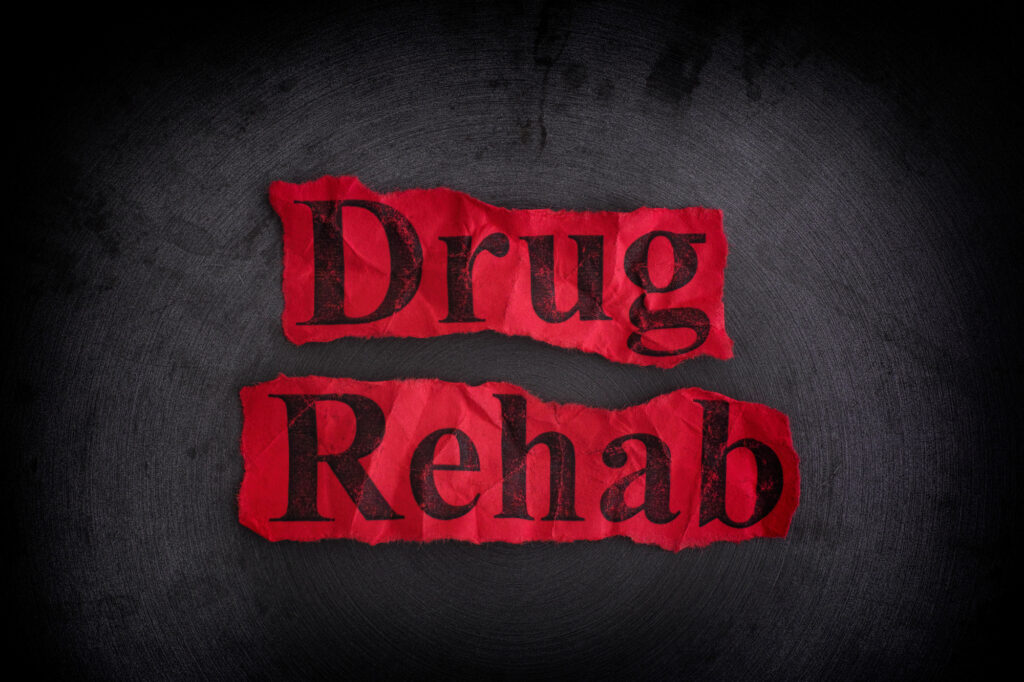You’re tired of the hold that drugs have on your mind, your body, your life. For this reason, you’re considering finally checking yourself into a drug rehab program.
You’re in good company. Research shows that more than four million people undergo substance use disorder treatment in a year’s time. However, this is just 18% of the number of people who actually need treatment for alcohol or illegal drug use problems.
However, to find the right drug rehab program, there are several things you need to consider. Here are 12 important questions to ask before choosing a drug rehab program.
Let’s get started.
1. What Is the Treatment Philosophy of Your Addiction Recovery Program?
This is one of the most important questions to ask when looking for the right drug rehab program. That’s because you want to go to a facility whose treatment philosophy aligns with your expectations and personal requirements.
For instance, look for a facility that emphasizes treating their clients with respect, rather than using damaging labels.
Unfortunately, there is a stigma associated with drug addiction that prevents some people from pursuing care or causes them to delay care. However, a reputable rehab program won’t look at you through the lens of negative stereotypes and attitudes.
Instead, they’ll treat you with dignity, focusing on helping you to overcome your addiction.
2. What Is Your Ratio of Staff and Residents?
This is another essential question to ask, as you want to make certain that you receive the attention you deserve when seeking treatment.
Before choosing a program, ask how many individuals will be involved in your treatment process. Also, ask about the role that each will play in helping you to reach your turning point.
You ideally want a program where the support staff is committed to working closely with you. These individuals should serve as positive and ever-present role models in your life.
3. What Will Happen to Me During Rehab?
Your prospective rehab program should clearly lay out what your various treatment options are.
For example, before starting rehab, you may be required to complete a substance use intake assessment, or evaluation. During this process, a counselor can determine which drug treatment program would best fit your needs.
Next, you will be placed in a program that will help you to overcome your alcohol or drug addiction.
Outpatient Programs
As an example, your prospective program might offer intensive outpatient programs along with regular outpatient programs.
An intensive outpatient program is perfect for you if you live independently or with your family. It may also work for you if you reside in a setting that promotes sober living.
Meanwhile, a regular outpatient treatment program is appropriate for you if you need minimal acute care.
For instance, this option is recommended if you need just one individual therapy session per week. Likewise, you may go this route if you need two group sessions per week.
The regular outpatient option can especially be handy if your job is demanding you can’t get out of work for an extended program. Likewise, choose this option if your personal schedule prohibits you from spending several hours a week in an intensive program.
You can also benefit from a regular outpatient program if you are currently transitioning from an inpatient treatment program. It will provide you with the support and structure you need to continue your recovery.
Regular outpatient programs can likewise help you if you have moderate or mild symptoms but already have a solid family support system. Your program will simply help you to tackle any issues that crop up in your daily life and threaten your ongoing recovery.
Inpatient or Ambulatory Program
An inpatient or ambulatory rehab program may be the best option if you struggle with excessive drug use. You can also choose these treatment approaches if suddenly stopping your drug use may jeopardize your health.
An inpatient treatment or inpatient detoxification program is appropriate for severe addiction cases. It may allow you to more easily achieve and maintain sobriety by providing you with a new, healthy environment that is free of temptations.
Meanwhile, the ambulatory detoxification approach is ideal for you if you are in decent physical shape.
During the detoxification process, a doctor will supervise you as you are weaned off of drugs. For instance, they’ll keep track of your vital signs and treat any adverse reaction you might experience due to ending your drug use.
Your doctor may also prescribe you medication to help with any discomfort you experience during the detoxification process.
Partial Hospitalization Treatment
An alternative to inpatient drug treatment is partial hospitalization treatment, also known as PHP treatment.
With inpatient treatment, you sleep on-site. However, with PHP, you can continue to live at home. You might also have the option of living in a sober living setting that your PHP treatment program sponsors.
Still, during your treatment process, you will be immersed in treatment just as you would be with inpatient treatment. You may also be required to complete an individual therapy session each week.
4. Do You Do More Than Just Help with Detoxification?
When researching a drug rehab program, find out if the program teaches life skills along with helping with addiction. These skills should assist you in living a sober life moving forward.
This is critical because even if you do exceptionally well in treatment, you might face influences in your daily life that cause you to relapse. These influences could include the following triggers:
- Everyday frustrations
- Stress from your job
- Drug dealers and friends who use drugs
- Your previous party scene
Life skills training in a drug rehab program will teach you how to handle such social pressures. You should learn how to tap into alternatives to using drugs to solve your problems, like drinking alcohol-free drinks, exercising, and trying new hobbies.
5. Can I Interact with Other People During My Program?
This is another essential question to ask a prospective rehab program, as you may feel vulnerable, alone, and scared when starting your program.
When you begin treatment, you might find it hard to replace your old drinking or drug habit with a healthy alternative. For this reason, your treatment program should include sober and enjoyable activities for you to take part in with other individuals.
Through these activities, which include group discussions, you can build new relationships and actually have fun. This will help you to more easily stay engaged in your recovery.
6. Do You Provide Individualized Treatment?
No one drug treatment approach works for everybody facing addiction. This is why it’s paramount that your chosen drug rehab program tailors your treatment to your specific situation.
For instance, the facility should consider your psychological and medical backgrounds when deciding on the right treatment option for you. Likewise, they should look at your social and legal situations.
Other factors that your potential rehab program should consider include your favorite drugs and your age.
The more the program tailors your treatment to your emotional, social, or medical needs, the more comfortable and productive your recovery journey will be.
7. How Long is the Drug Rehab Program?
As a general rule of thumb, addiction treatment programs work best when they last at least a month. For this reason, rehab centers often offer treatment option lengths spanning from a month to three months.
Still, your particular treatment plan may be customized according to your diagnosis. So, be sure to ask your potential rehab program how long their various treatment programs last and which one they think would best fit your needs.
Keep in mind that some individuals may improve simply by going to counseling sessions and meetings by themselves. However, the majority of people who struggle with addiction benefit from extensive support.
The reason for this is that drug addiction drastically impacts the brain. It can therefore take a while to rebuild what was damaged due to drug use.
For this reason, resist the urge to rush your recovery process. Instead, embrace the progressive body and mind healing that takes place during rehab. Your goal should be to recognize your potential and live up to it both now and in the future.
8. Is Your Environment Safe?
Before choosing any rehab program, ask them about the quality of their environment.
For starters, the program should be located in an environment that is secure. It should also make you feel comfortable so that you can more easily focus on overcoming your drug addiction.
For instance, you don’t want a confined environment where you feel isolated. Instead, look for a place where you are given enough space to flourish while being under your supervisor’s care.
9. Can I Continue My Education While Undergoing Treatment?
Perhaps you are currently in college and you’re wondering whether you can keep going to school while going through treatment. Ask your potential rehab programs this question, and choose only a program that won’t interrupt or interfere with your education.
The best programs will always support and promote ongoing education. So, find a program that will allow you to incorporate your coursework into your schedule, for example.
If you go this route, you may also want to talk to your educational advisor to determine what courses you can easily balance while in rehab.
Also, if you do need to stop your schooling for a short while, ask if the credits you previously earned will still count when you continue your education after your treatment.
10. Will I Forge Connections That Will Last Beyond the Program?
This is another invaluable question to ask, as cultivating long-term relationships is an important part of drug addiction recovery.
When you forge positive, long-term connections during the treatment process, your new friends can continue to support you after treatment. In a way, you are creating a reliable sober community you can trust in following your rehabilitation process.
11. What Are Your Facility’s Credentials and Client Reviews?
Be sure to ask your potential drug rehab program if they are licensed as well.
Licensure demonstrates that the facility is legally qualified to provide you with drug addiction treatment. This will give you peace of mind in knowing that your program will provide you with quality treatment according to best practices.
Also, ask to see testimonials from the program. Reviews from previous clients should ideally indicate that the facility’s staff are empathetic and competent.
12. What Are My Payment Options?
This is another essential question to ask, particularly if cost is a concern for you. Look for a program that takes Medicaid if you receive health care benefits through this program. Otherwise, if you have health insurance, look for a program that accepts the majority of today’s major insurers.
Keep in mind that some insurers may cover all of your inpatient drug treatment stays. Meanwhile, others might cover only some of them. For this reason, you should seek authorization for treatment from your insurer before joining any rehab program.
How We Can Help
Shopping around for the best drug rehab program can be an intense endeavor. However, by asking about the types of treatment offered and the length of treatment at various facilities, you can make an educated decision about the best program to choose.
At New Life Recovery, we take pride in offering personalized drug treatment. That means we provide care based on your unique characteristics and needs. Get in touch with us to learn more about our treatment options and how we can help you to reclaim your health and your life long-term.



